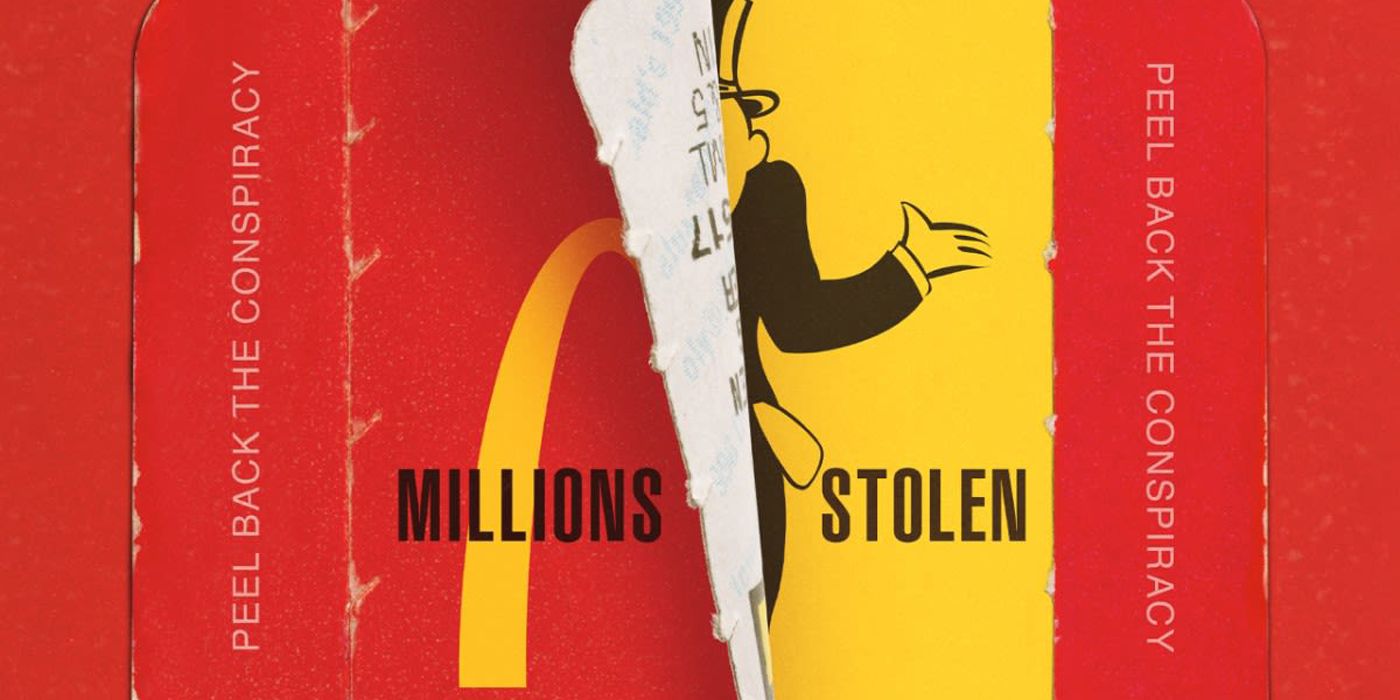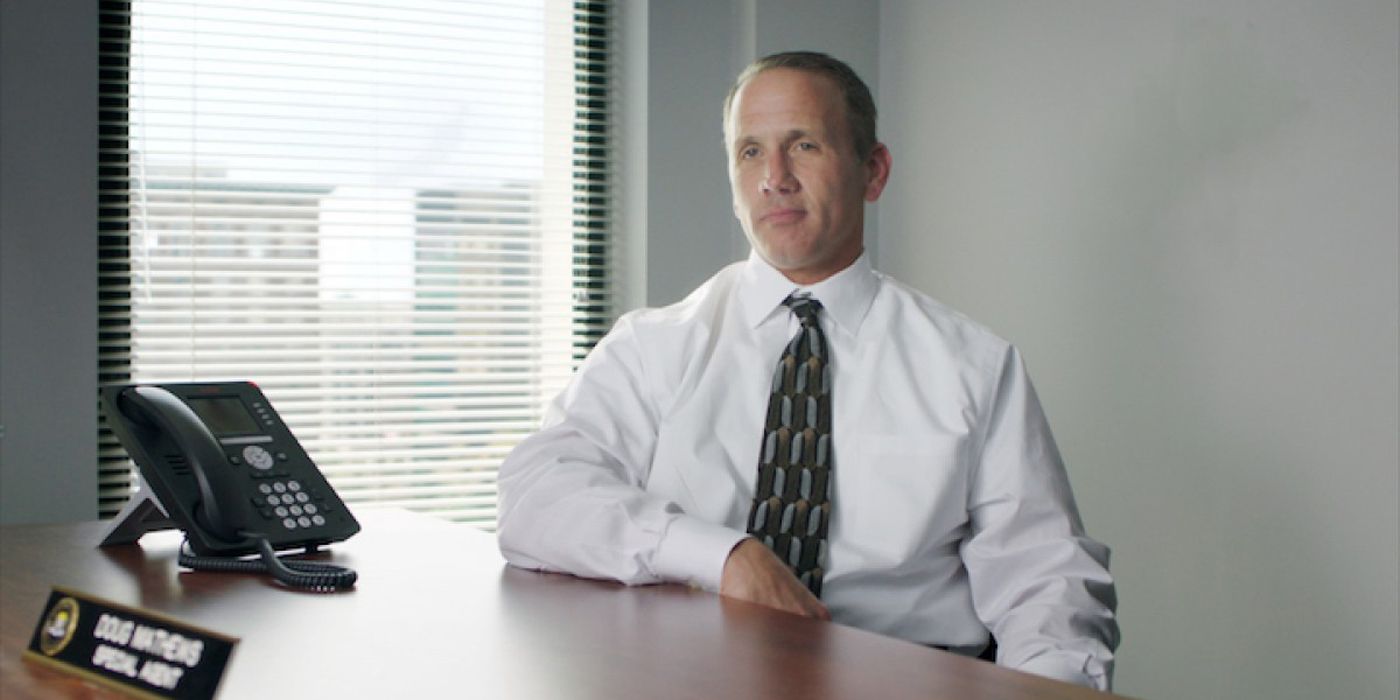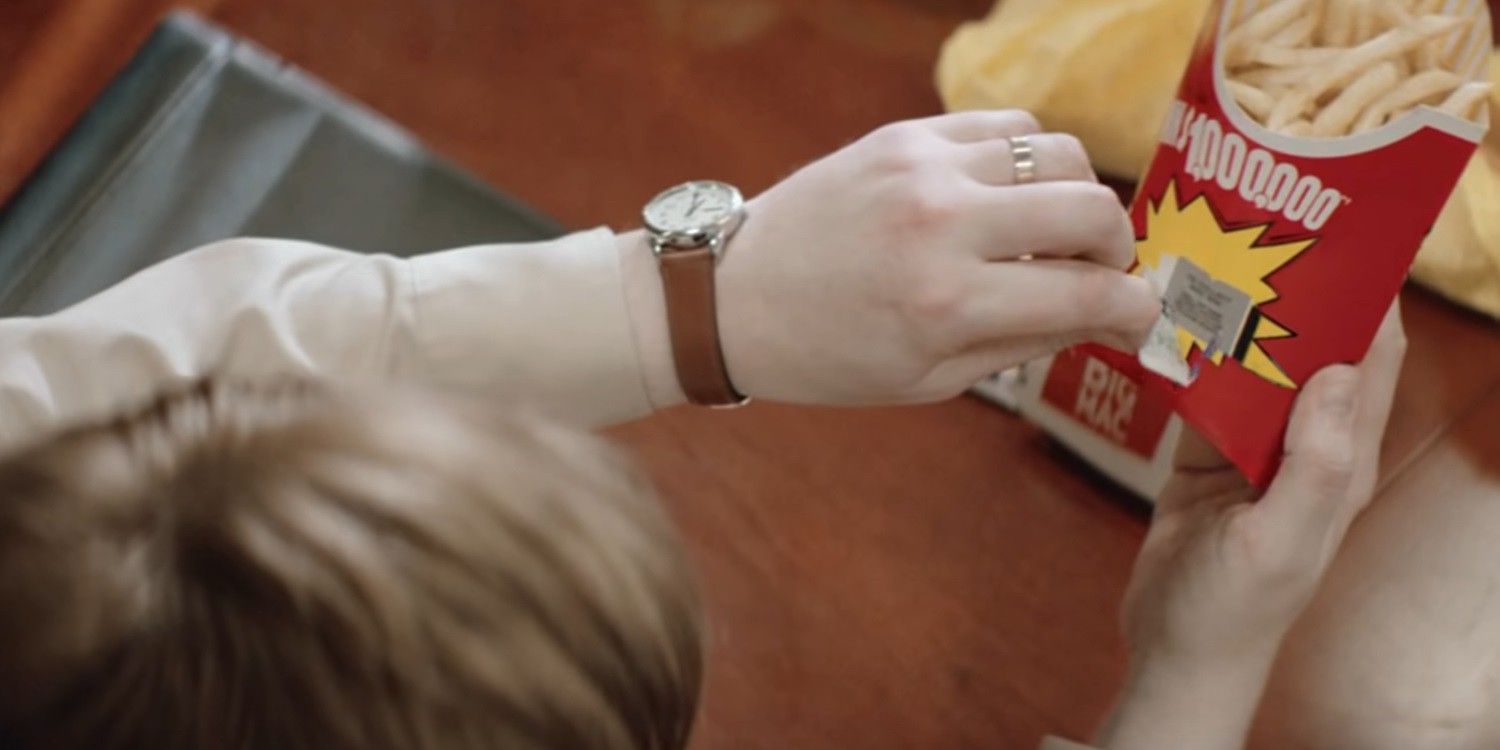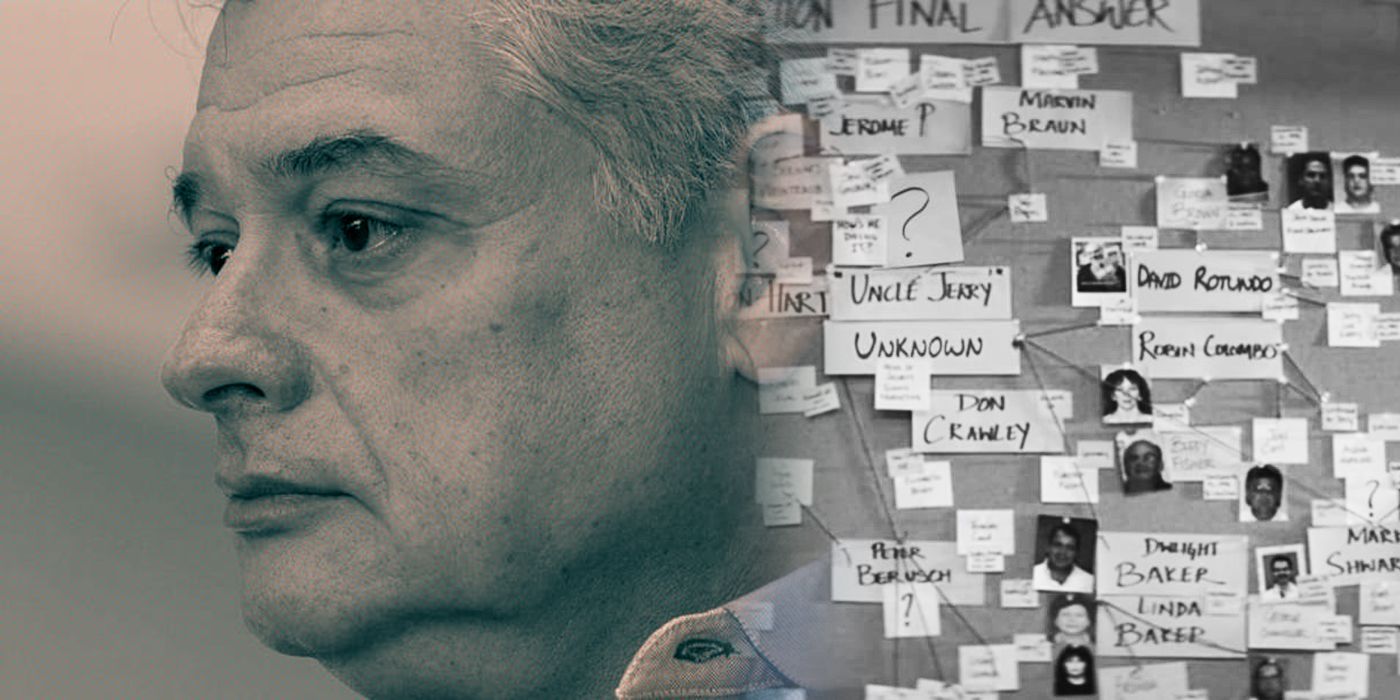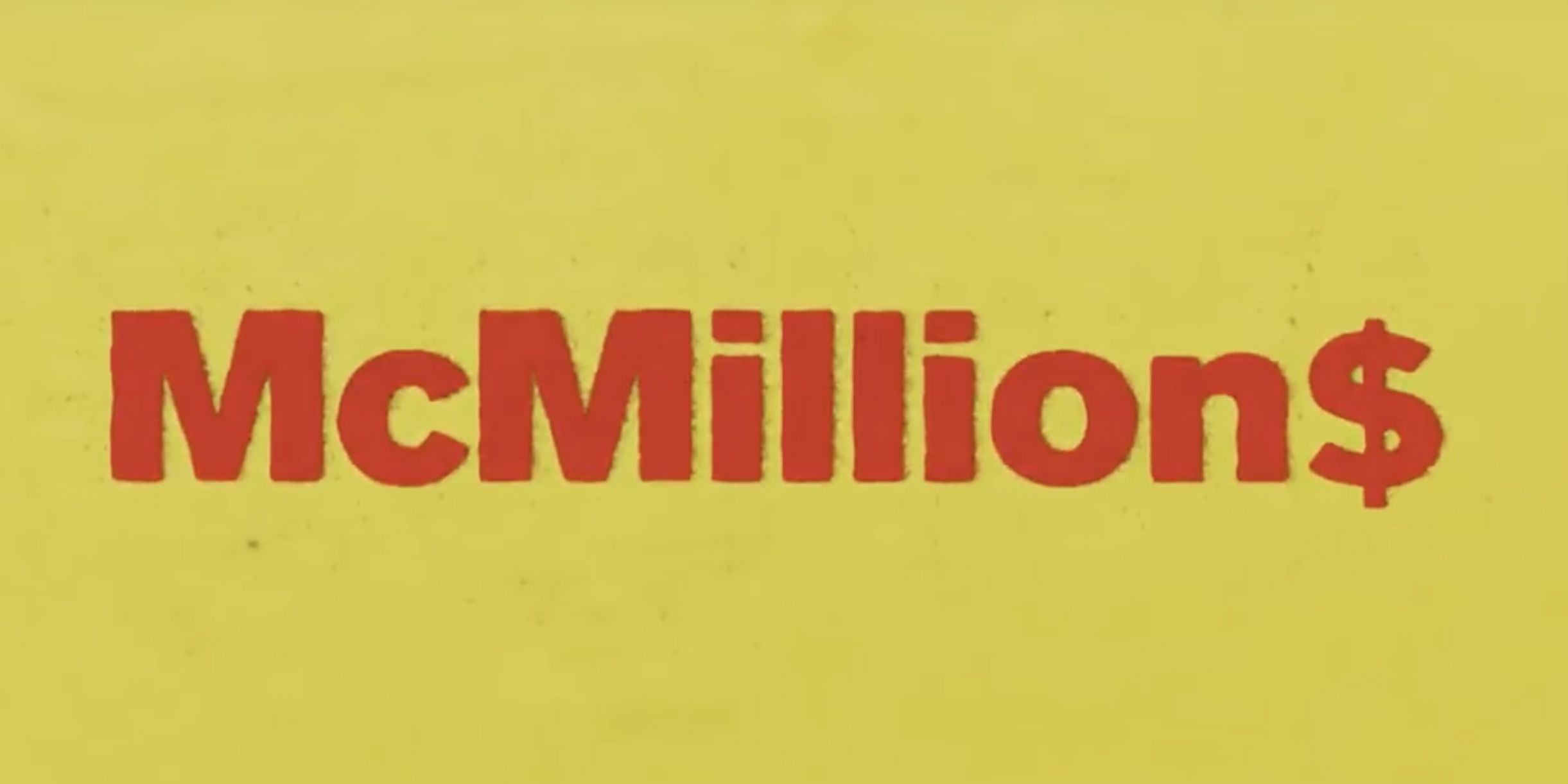HBO's docuseries McMillions investigates a massive conspiracy that involved criminals rigging the McDonalds Monopoly promotion; however, the series leaves out some key aspects of the story. Monopoly first ran a Monopoly-themed promotion in the late '80s. As HBO's documentary describes, it was the brainchild of the now-defunct company Simon Marketing — a casualty of the scam. The history of the McDonalds Monopoly is a fascinating true crime story, but the version told in McMillions isn't the whole truth.
The Monopoly promotion was so successful for McDonalds that it became an annual tradition for the fast food chain. In 2000, however, the FBI revealed to the public that the game had been rigged, and for years, there were no legitimate winners of the game's top prizes. The accused went to trial in early September 2001, and initially the story was all over the news — until the terrorist attacks on September 11 completely eclipsed the story. The story resurfaced in the public eye following an exposé in the Daily Beast that is now the subject of an upcoming Hollywood movie production.
The 6-part HBO documentary premiered in February 2020, and concluded March 9 2020. The docuseries interviewed a colorful cast of people involved in the original scandal; furthermore, McMillions revealed some shocking details of the Monopoly scam, and the work that went into uncovering it. However, not everything that happened during the investigation made it into the HBO docuseries.
McMillions Ignores Special Agent Richard Dent
HBO's McMillions gives a lot of screen-time to charming FBI agent Doug Mathews, who claims to have been the driving force behind the whole Monopoly scandal investigation, dubbed Operation 'Final Answer'. Mathews was just a rookie on the force back then, and he describes himself in the documentary as hungry for action and "always looking for a fun ride". Mathews is vivid onscreen, and his boyish charm and southern drawl are a highlight of the documentary.
According to Jeff Maysh's detailed feature on the story, published back in 2018 for Daily Beast, Mathews was not the driving investigative force behind Operation 'Final Answer.' While Mathews takes the credit sparking interest in the case onscreen, the real person responsible for spearheading the investigation, at least initially, was Mathews mentor, Special Agent Richard Dent. Dent did not appear in the documentary.
McDonalds Monopoly Winners Called a Hotline
McMillions dramatizes the events of fake winners claiming their prizes at McDonalds, drawing out the experience of Gloria Brown, McDonalds' first African American $1 million "winner," in order the build suspense. The documentary implies that the winners all claimed their prizes in-person by entering a McDonalds restaurant and filling out a form.
However, according to the Daily Beast's article, the process actually had an option to call a hot-line and then mail-in a form with a photocopy of the winning piece — which explains how the FBI were able to charge the scammers with the federal offence of mail fraud. The event would still have been suspenseful for those involved, especially for people like Brenda Phenis, the sister-in-law of Dwight Baker, one of Jacobson's recruiters. According to Maysh, Baker took Phenis on a road trip to North Carolina where she had set up a fake life, including renting an apartment and obtaining a state driver's license. He then stood over Phenis' shoulder as she called the hotline.
McMillions Leaves Out Details About Jerry Jacobson
For the amount of time McMillions builds up the question "who is Uncle Jerry?" the docuseries doesn't actually dedicate much screen-time to characterizing who Jerry Jacobson was as a person. Jacobson was the man at the heart of the scam; he was the one who would obtain the winning pieces, which he was able to do because of his security position with Simon Marketing. He then distributed the stolen pieces using a network of criminals, taking a portion of the winning money from each prize. He gained the moniker "Uncle Jerry" from his co-conspirators in the mafia. The testimonies of his ex-wife and son paint a negative picture of a selfish and violent man, one who turned to a life of crime following a disappointing career-trajectory; however, this is not how Jacobson is described in the original Daily Beast article.
Maysh characterizes Jacobson as "obsessed with loss prevention." He appeared to take his job very seriously, which explains why he was not immediately considered a suspect in the investigation. Not only did Jacobson carry the winning game pieces, but he also "personally scissored out the high-value game pieces and slipped them into envelopes, before sealing each corner with a tamper-proof metallic sticker." The documentary shows how Jacobson swapped out the game pieces from the envelope while in the bathroom, but leaves out his mode of transporting them: in the documentary, dramatizations of events show him carrying a suitcase, but, according to Maysh's article, Jacobson carried them in a "secret vest, of his own invention."
Furthermore, the independent auditor following Jacobson was less effective than McMillions lets on. Not only was the auditor away from Jacobson when he went to the bathroom, but the two were also separated on the flights: according to Maysh, Jacobson flew first class "where he tried to impress other passengers by flashing his old police badge," sometimes in the company of another security manager, whereas the accountant flew in coach.
McMillions Leaves Out the Canadian Conspiracy
The article describes a Canadian conspiracy that is never mentioned in McMillions:
...according to Jacobson, when the computerized prize draw selected a factory location in Canada, Simon Marketing executives re-ran the program until it chose an area in the USA. Jacobson claimed he was ordered to ensure that no high-level prizes ever reached the Great White North. 'I knew what we were doing in Canada was wrong,' Jacobson recalled. 'Sooner or later, somebody was going to be asking questions about why there were no winners in Canada.' Believing the game was rigged, he decided to cash in, too.
Maysh goes on the describe how Jacobson stole documents proving the "conspiracy," assuming that if he was ever caught, he could leverage the proof to avoid penalty. McMillions doesn't mention to conspiracy, likely because it's unfounded, and/or because McDonalds would have been less cooperative if the series had. While there has never been official confirmation from McDonalds acknowledging or denying such allegations, the policy of "rigging" the game to only award Americans is evidently no-longer the case, as a man from Selkirk, Manitoba won the $1 million prize on a coffee cup in 2012 (via Winnipeg Free Press).

